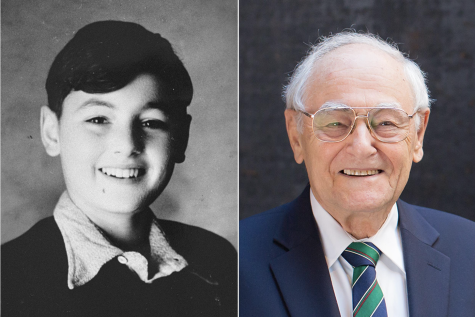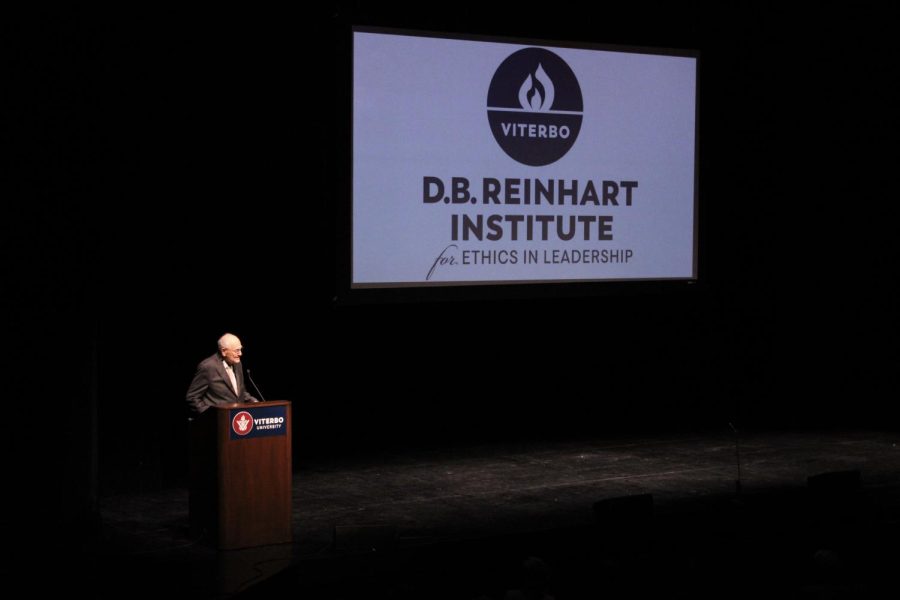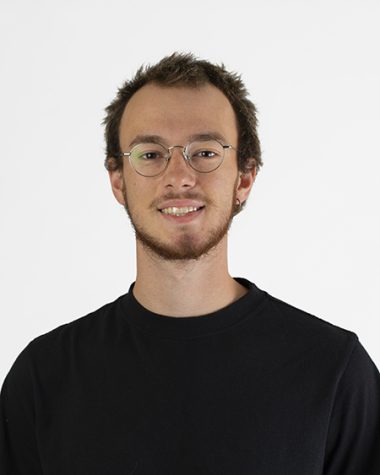Holocaust survivor Peter Feigl visits La Crosse to share his story
March 27, 2023
The D.B Reinhart Institute for Ethics in Leadership’s mission statement is “to create opportunities for education, research, and dialogue about significant ethical ideas and issues.” The statement continued, “The vision of the Institute is to be a catalyst in a flourishing community of servant leaders dedicated to the common good.”
The Reinhart Institute hosts and sponsors numerous speakers from a variety of different backgrounds and circumstances to come and speak about their experiences. On Thursday, March 23, the institute hosted another installment of its lecture series in the Main Theatre of the Fine Arts Center at Viterbo University as well as streaming the event over Facebook live.
At 7:00 p.m., the evening began with an opening vocal number from the 9th Street Singers. Then, following an introduction from Darryle Clott, one of the hosts for the event, the main speaker, Peter Feigl, came out.
Feigl, who was born in 1929 in Berlin, Germany, spoke with the sponsor of the Reinhart Institute to shed light on his experience as an ethnic Jew in Europe during World War II. While Feigl and his family were ethnically Jewish, they did not practice the religion. Feigl was baptized as a part of the Catholic Church when he and his family moved to Vienna in 1937.

Despite being baptized, the Feigl family’s ethnic background had precedent in how they were viewed in Europe with the Nazi party in Germany and the spread of antisemitic ideas. As the Nazis gained more power and invaded other countries across Europe, the Feigl family had to leave their home; first to Belgium in March of 1938, and then to France in June of 1940.
After spending some time in the Gur’s Detention Center in France with his family due to suspicion of aiding the enemy, Feigl was settled in Auch with the help of some nuns there. After living in Auch for a time, the Nazis invaded France; with the aid of the Vichy government, the systematic arrest of Jewish individuals across France began. The groups of captured Jewish people were to be sent to German concentration camps throughout Poland.
On August 26, 1942, Feigl’s parents were among those who were rounded up and killed. Feigl never learned of his parent’s death until much later in life.
Following his parent’s disappearance, Feigl moved around to different places around France including Le Chambon sur Lignon and Figeac. Eventually, after the pressure of being arrested by Germans in Figeac, Feigl fled and escaped to Switzerland with the aid of the Jewish underground.
As he finished telling his story to the audience, Feigl left the audience with a message. “I will end with this: do the right thing. If you see someone getting bullied, for example, don’t let it continue, stop it as it starts,” said Feigl. “I wouldn’t be here if it weren’t for other people doing the right thing.”
“History has a way of repeating itself,” said Feigl. “Some social unrest might occur and someone might come along looking for a scapegoat to blame that social unrest on, like a bully.”
When Feigl was introduced, Clott, a Holocaust educator, said, “Remembering and reflecting helps us learn about events from our past.”
After Feigl wrapped up his discussion, he offered a question-and-answer session with the audience. Following fielding questions related to the diaries he kept, his opinions on Holocaust deniers, and his view on religion, Feigl was handed a vase of flowers at the end of the program. Upon receiving the flowers, Feigl said, “I am not ready for my funeral yet.”
To read more about Peter Feigl and his life, click here.







